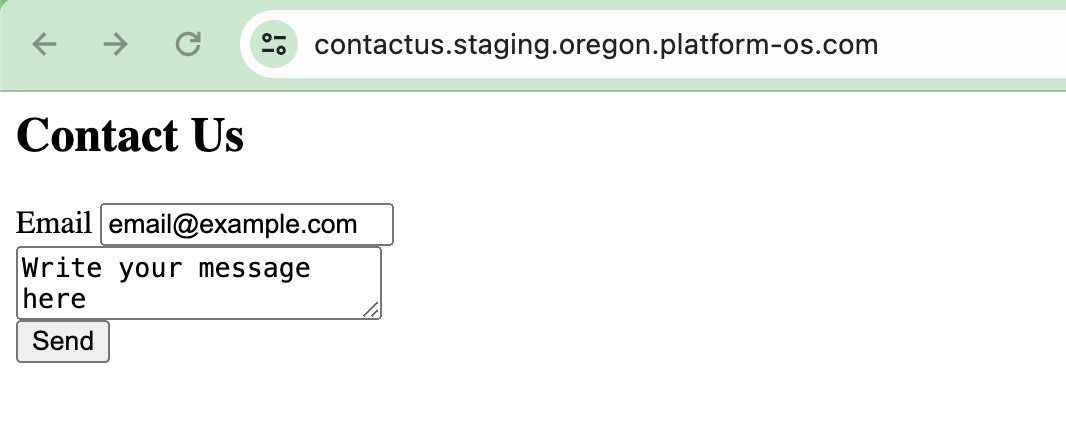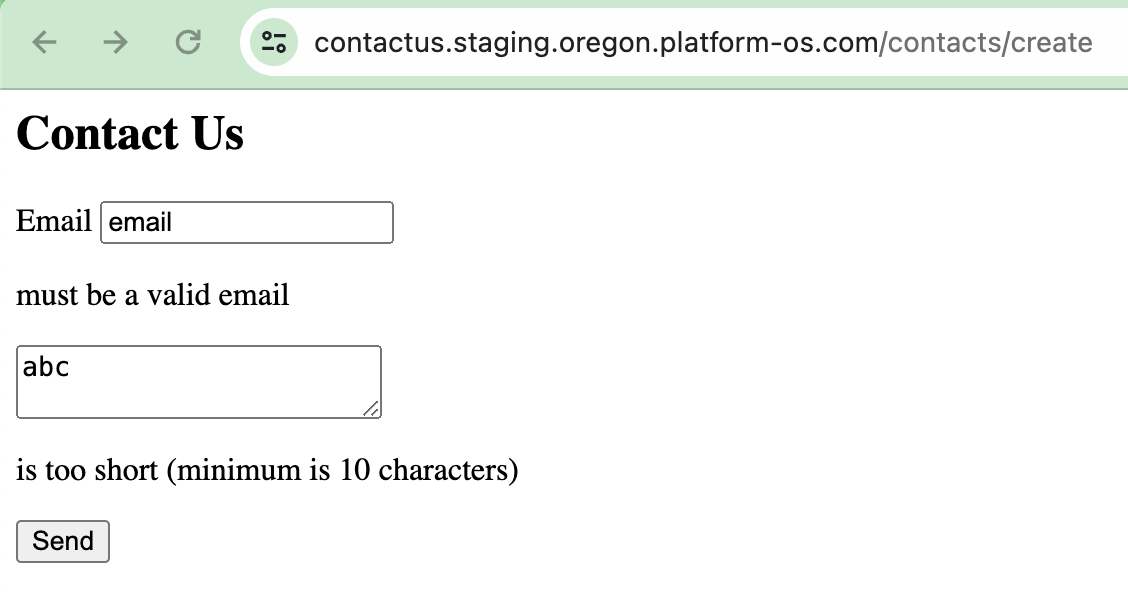Using Partials for Better Code Maintenance
Now that our Contact Us form is working as expected, we should consider code maintenance. The current solution has a significant drawback: if we need to change anything on our home page, those changes won't be reflected in other parts of the site. To solve this problem, we can use partials. Partials allow us to extract reusable pieces of code, reducing duplication and improving maintainability.
Create partials directory
First, let's create a directory for our partials. We'll place these in a new partials directory inside app/views.
Create directories app/views/partials/contacts:
mkdir -p app/views/partials/contacts
Create the form partial
Next, create a new file named form.liquid in the app/views/partials/contacts directory. This file will contain the interface part of the Contact Us form.
app/views/partials/contacts/form.liquid
<h2>Contact Us</h2>
<form action="/contacts/create" method="post">
<input type="hidden" name="authenticity_token" value="{{ context.authenticity_token }}"</input>
<div>
<label for="email">Email</label>
<input type="text" name="contact[email]" id="email" value="{{ contact.email }}">
{% if contact.errors.email != blank %}
<p>{{ contact.errors.email | join: ', ' }}</p>
{% endif %}
</div>
<div>
<textarea name="contact[body]">{{ contact.body }}</textarea>
{% if contact.errors.body != blank %}
<p>{{ contact.errors.body | join: ', ' }}</p>
{% endif %}
</div>
<input type="submit" value="Send">
</form>
Use partials and render in the Contact Us page
Now, update app/views/pages/contacts/create.liquid to use this partial instead of duplicating the form code:
app/views/pages/contacts/create.liquid
---
method: post
---
{% function contact = 'commands/contacts/create', object: context.params.contact %}
{% if contact.valid %}
...
{% else %}
{% render 'contacts/form', contact: contact %}
{% endif %}
Note
The render tag allows us to include the contents of one template within another. By using this tag, we can modularize our code, making it more maintainable and reusable.
When we use {% render 'contacts/form' %}, we are including the form partial located at app/views/partials/contacts/form.liquid.
To ensure the form displays correctly with the appropriate data and error messages, we pass the contact object to the partial. This object contains the user’s input (e.g., email and message body) and any validation errors that need to be displayed.
In this example, we pass the contact object to the contacts/form partial. By rendering the partial and passing the contact object, we ensure that the form displays correctly with the appropriate data and error messages.
Use the partial on the home page
We also want to use this partial on the home page. Instead of rendering the form directly, we render the partial:
app/views/pages/contacts/index.html.liquid
{% render 'contacts/form', contact: null %}
Since there is no data to display initially, we pass null for the contact object.
Add example data to the fields
However, we can also create an object with default values if needed. Example with default values:
app/views/pages/contacts/index.html.liquid
{% parse_json contact %}
{
"email": "[email protected]",
"body": "Write your message here"
}
{% endparse_json %}
{% render 'contacts/form', contact: contact %}
This would display example data in the fields on our home page by default:

Note
By using partials and the render tag, we have decoupled the business logic from the presentation, creating a more maintainable, consistent, and flexible codebase, which enhances the overall quality of the application. Any changes made to the form will now be reflected across all pages that use this partial.
Test the form
Navigate to your Contact Us form and submit invalid data. The form should re-render and display the relevant error messages.

Additionally, check the home page to ensure the form displays as expected now with partials used.